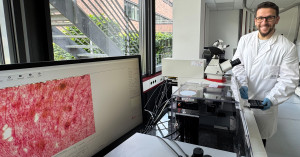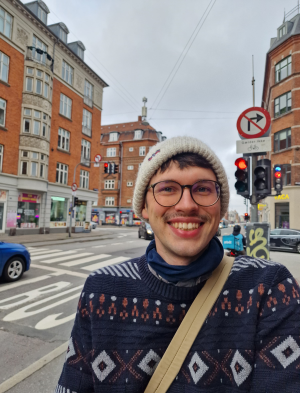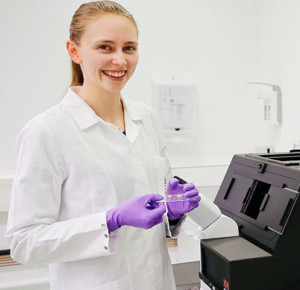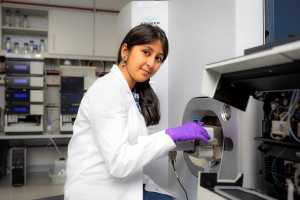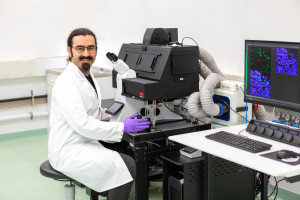Dortmund, 10th December 2024
AI expert Prof Dr Xiaowei Xu from the Chinese Guangdong Cardiovascular Institute will conduct his research in ISAS’s AMBIOM group as a fellow of the Alexander von Humboldt Foundation over a period of 18 months. His research interests include artificial intelligence for cardiovascular diseases, including deep learning, and the processing of medical images. Xu has already worked as a researcher in the US and Canada several times. In this interview, the 37-year-old explains why he applied for the guest residency in Germany and what he plans to do in Dortmund starting February 2025.
Professor Xu, why did you decide to do a research stay at ISAS?
Xu: Gottfried Wilhelm Leibniz is one of the most well-known scholars in history, and I have known about him since my middle school time. So, it is an honour and quite appealing to stay at ISAS, one of the Leibniz institutes, and by that have some connection with Leibnizʼs legacy.

Prof Dr Xiaowei Xu conducts research at the Guangdong Cardiovascular Institute in China.
Humboldt Research Fellowship
The Alexander von Humboldt Foundation’s research fellowship is aimed at academics from abroad with above-average qualifications who wish to work at German research institutions. Applicants first apply to the research institution with their own project or topic. If accepted, they can then conduct research there for between six and 24 months with the help of the Humboldt Research Fellowship. Among other benefits, the fellows receive monthly financial support and a language course.
How do you want to spend your time as a guest researcher at AMBIOM?
Xu: I will work most of the time with Dr Jianxu Chen and his team to conduct research on efficient AI for biomedical image segmentation. I will also spend some time visiting the other research groups at ISAS and partner hospitals. Collaboration and networking are important for scientific activities and research.
In your opinion, how does Germany compare internationally when it comes to AI in health research?
Xu: First, on the industry side, Germany is at the top positions in the medical field with a group of famous companies like Siemens and Bayer. And I believe these top medical companies will soon become the industry pioneers in AI in health research. Second, on the re- search side, for example nnU-Net is the leading tool for image segmentation. It is currently the most famous AI framework which has been proposed by a group of researchers from the German Cancer Research Center – Deutsches Krebsforschungszentrum, DKFZ. Though there are not as many research papers coming from Germany compared to the number of publications from other countries, the quality is impressive. So, all in all, I think Germany is definitely in the top position in AI in health research.
(The Interview was conducted by Sara Rebein.)
